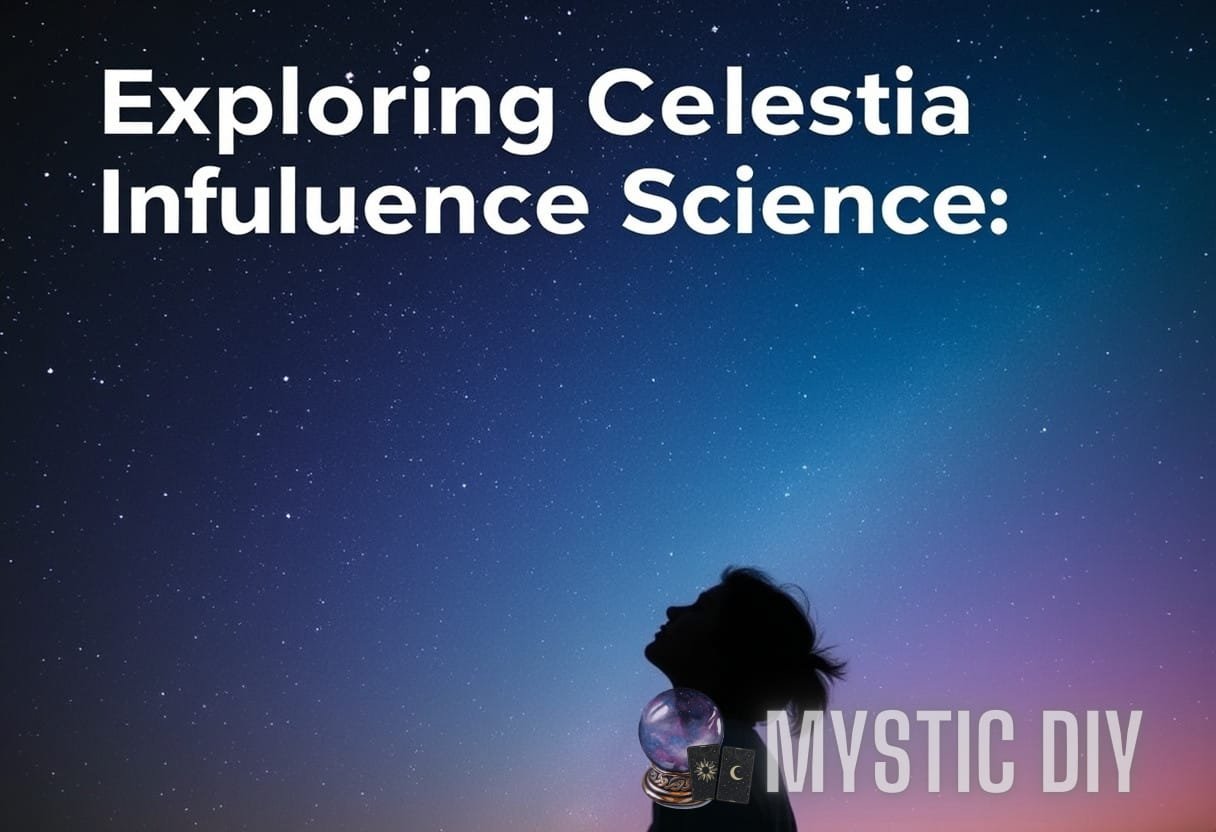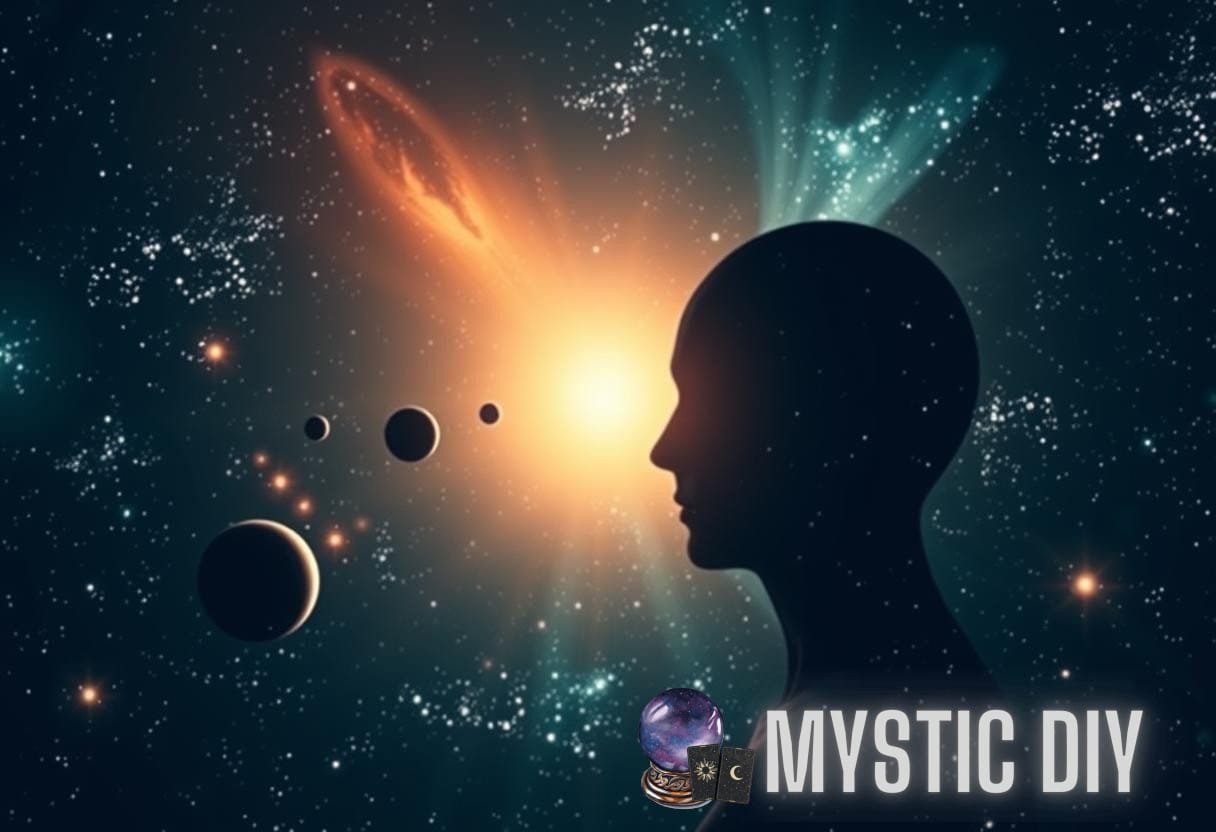Astrological Resonance: Understanding the Scientific Basis of Celestial Influences on Human Experience
Astrology, often dismissed as a pseudoscience, has captivated human imagination for centuries. It proposes that the positions of celestial bodies like stars and planets influence human behavior, personality traits, and life events. This concept leads us to explore the notion of celestial influence science.
The Historical Context and Evolution of Astrology
The roots of astrology can be traced back to ancient civilizations. The Babylonians were among the first to organize celestial observations into a cohesive system, developing horoscopes around the third millennium BCE. They observed consistent patterns, attributing them to the influence of celestial bodies on terrestrial events.
- The Egyptian civilization also incorporated astronomy into their astrological beliefs, linking the movements of celestial bodies with the reign of pharaohs and agricultural cycles.
- Throughout history, various cultures have integrated astrology into their societal frameworks, influencing decisions ranging from agricultural practices to war strategies.
- Modern astrology evolved by synthesizing traditional beliefs with contemporary psychological theories, giving rise to what many now refer to as psychological astrology.
The Role of Astronomy in Astrology
The relationship between astronomy and astrology is vital. Astronomy serves as the foundation for astrological principles, as it studies celestial objects and their movements in a scientific context. There are numerous ways in which astronomical observations can relate to astrological interpretations:
- Planetary Positions: Astronomers track the positions of planets in their orbits, providing essential data for astrologers to create horoscopes.
- Constellations: The twelve zodiac signs are derived from the constellations observed in the night sky, suggesting a connection between observed patterns and human development.
- Transits and Retrogrades: Astronomical events like planetary retrogrades are noted in astrology for their potential influences on personal and collective experiences.
Underlying Mechanisms of Celestial Influence
To comprehend the mechanics of celestial influence science, it is crucial to explore various theories that aim to explain how celestial bodies can impact human lives. While many of these theories remain speculative, they provide intriguing insights into possible correlations:
- Gravitational Effects: Some scientists argue that the gravitational pull exerted by celestial bodies may influence human physiology, particularly in terms of fluid dynamics in our bodies. Studies show that the moon, due to its proximity to Earth, affects ocean tides, which could extend to biological processes.
- Electromagnetic Fields: Every celestial body emits electromagnetic radiation. It is hypothesized that variations in these fields could somehow influence human health and emotional states. Research in energy medicine aims to understand these potential links better.
- Circadian Rhythms and Celestial Cycles: Human biological clocks are indeed influenced by cycles, such as day/night and seasonal changes. As certain celestial phenomena correlate with these cycles, they may indirectly influence behavior and mood.
Astrology and Psychology: The Connection
The interplay between astrology and psychology is another enriching avenue for understanding celestial influence. Psychological astrologers posit that the positions of celestial bodies at one’s birth might correlate with personality traits and behavioral patterns. Recent studies have scrutinized these correlations:
- A study published in the Journal of Personality and Social Psychology examined over 2,000 individuals. It found statistically significant patterns in personality traits corresponding with the natal positions of planets.
- Dr. N. H. M. Bøe conducted research on astrological birth charts and their alignment with psychological outcomes, reporting that many participants felt a strong connection between their astrological readings and life experiences.
- Moreover, therapeutic practices incorporating astrology—such as birth chart analysis—help clients gain insights into personal challenges, uncovering patterns that could enhance their self-awareness.
Case Studies: Empirical Investigations
Several researchers have attempted to explore the validity of astrological claims through empirical studies. Below are a couple of significant case studies evidencing attempts to bridge astrology and science:
- Swiss Psychiatrist Carl Jung: Jung’s interest in astrology stemmed from his exploration of synchronicity—the idea that events are meaningfully related. He believed astrological charts might serve as tools for understanding the psyche and predicting personal occurrences.
- Research by Michel Gauquelin: Gauquelin conducted studies where he found that certain planets seemed to influence the professions of people born under specific signs, known as the “Mars effect.” His research sparked debates within scientific communities about astrology’s potential validity.

Astrological Indicators in Modern Culture
In today’s society, astrology has gained renewed popularity, often viewed through the lens of personal development and introspection. Many individuals consult astrology for guidance on relationships, career choices, and personal growth. The ease of accessing astrological information online, through apps, and social media platforms highlights its relevance in a rapidly changing world.
- Horoscopes: Daily, weekly, and monthly horoscopes provide personalized insights and predictions based on astrological charts.
- Astrology and Branding: Companies now embrace astrology as part of their branding strategy, attracting clientele who resonate with their targeted astrological signs.
- Astrology and Wellness Practices: Mindfulness and wellness communities increasingly integrate astrological insights into their approaches, promoting a holistic view of health.
Scientific Critiques of Astrology
While advocates champion astrological insights, scientific critiques persist. Many researchers argue that astrology lacks empirical evidence and scientific rigor. Common criticisms include:
- Confirmation Bias: Skeptics argue that individuals often remember astrological predictions that align with their experiences while disregarding those that do not.
- The Barnum Effect: This psychological phenomenon explains why vague and general statements can apply to most people, leading one to believe in the accuracy of astrological interpretations.
- Lack of Predictive Capability: Many scientists point out astrology does not provide consistently accurate predictions or testable hypotheses, contrasting it with established sciences such as physics and biology.
Celebrity Influence and Astrology
The association of astrology with celebrity culture has also propelled its popularity. Many public figures openly discuss their beliefs in astrology, thereby attracting a broader audience. This trend not only legitimizes astrology in popular culture but prompts discussions regarding its influence on decision-making in various spheres. Noteworthy cases include:
- Oprah Winfrey: Oprah’s discussions concerning astrology and her personal experiences with horoscopes have sparked public interest and conversation around astrological practices.
- Kardashians: The Kardashian family frequently mentions their astrological signs and characteristics, making astrology relatable to millions of followers.
- Astrologers in the Political Arena: Numerous politicians and public figures consult astrologers for personal and career guidance, further embedding astrology in contemporary society.
Conclusion: Bridging the Gap Between Science and Astrology
While the debate surrounding astrology’s validity continues, bridging the gap between celestial influence science and astrological beliefs promotes valuable discourse. As researchers delve deeper into the connections between celestial phenomena and human experience, it may contribute to a broader understanding of our universe’s complexities.
Understanding and acknowledging the curious interplay between ancient wisdom and modern empirical inquiry not only enriches the conversation around astrology but reaffirms our intrinsic connection to the cosmos. Through ongoing research and exploration, the scientific community may one day elucidate the mysteries behind astrological practices.
Further Reading and Resources
For those interested in exploring the intricacies of astrology and its scientific implications, the following resources offer insightful information:
- Astro.com – A premier resource for astrological tools, including free natal charts and interpretations.
- Psychology Today – A psychological perspective on the interplay between astrology and mental health.



